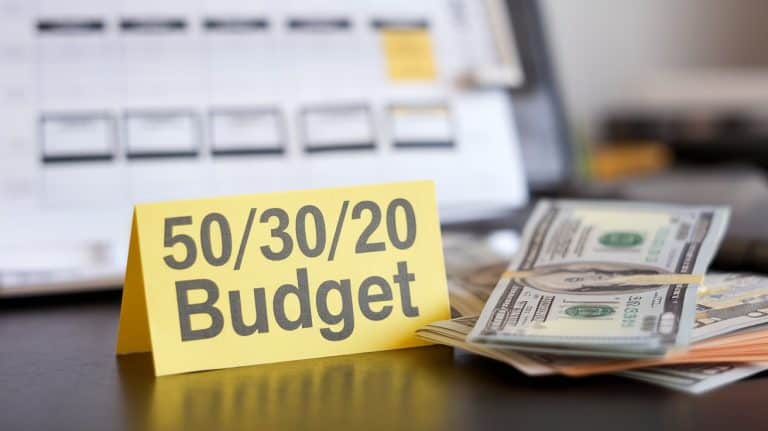7 Good Money Habits You Need to Start This Year

If you’ve ever wished for a magic wand to fix your finances, here’s the truth: it’s all about habits. Building good money habits doesn’t mean you have to change your entire life. In fact, small, consistent changes can have a huge impact. Think of these habits as the foundation of financial confidence, giving you the tools to handle anything life throws your way. Let’s dive into seven money habits that can set you up for success this year.
1. Pay Yourself First
“Pay yourself first” means prioritizing your savings and investments before anything else. When your paycheck hits, immediately put a chunk toward savings, retirement, or debt payments before spending on bills or wants.
Why? Because it forces you to save instead of spending whatever’s left over. Treat your savings like a non-negotiable bill. If you can, aim for 20% of your income. If that feels steep, start with 5% and work your way up. Progress is the goal, not perfection.
Think of it this way: every dollar you save or invest is a dollar working for your future. It’s like planting seeds in a garden. The more you plant, the more fruit you’ll harvest later. And when you prioritize saving, you’re giving yourself financial freedom. It’s not just peace of mind, it’s the ability to say yes to opportunities and no to stress.
To make this habit stick, automate it. Set up direct deposits into your savings or investment accounts. Some employers even let you split your paycheck into multiple accounts. Use this to your advantage by sending a portion of your pay straight to savings before it even hits your checking account.
2. Automate Your Savings
Imagine setting your savings on autopilot so you can focus on living your life. That’s exactly what automating your savings does. It takes away the pressure of having to remember to save and removes the temptation to spend first. Set up an automatic transfer from your checking account to a savings account on the same day you get paid. Even if it’s just $20 to start, that’s a step in the right direction.
Make your savings more exciting by assigning them goals. Instead of a generic “savings account,” rename it to something like “Hawaii Vacation” or “ Birthday Shopping Spree.” Seeing those names grow will motivate you to stick with it.
Experiment with micro-saving apps like Acorns or Chime. They round up your spare change and save it automatically, turning your small purchases into steady savings. It’s effortless and surprisingly effective!
3. Keep a Money Journal
Instead of obsessing over every dollar spent, take a moment to reflect on your spending with gratitude. At the end of each week, review your purchases and ask yourself how they added to your life. Did the groceries you bought feed your family? Did that dinner out with friends strengthen relationships? By focusing on the value your money brings, you’ll naturally start spending on things that truly matter to you.
This practice doesn’t mean ignoring bad habits. If you notice a trend of wasteful spending, use it as a chance to grow. Ask yourself what could have been done differently and set a small goal for the following week. Gratitude turns managing money into something positive and rewarding.
4. Break Your Budget Into Weekly Goals
Instead of tackling your finances all at once, try focusing on one area each month. For example, January could be your “Reduce Subscriptions Month,” where you cancel unused services and redirect those funds into savings. February might be “Meal Prep Month,” where you challenge yourself to cook more at home and cut back on dining out.
Monthly themes break your financial goals into manageable tasks. They also keep the process exciting and fresh, as if you’re always working on something new. By the end of the year, you’ll have tackled 12 different areas of your finances with intention and focus, all without feeling overwhelmed.

5. Invest in Yourself
What’s the best investment you can make? It’s you. Whether you’re learning a new skill, taking a class, or investing in your health, these payoffs can be life-changing.
For example, picking up a skill like web design or coding could open up new career opportunities. Or spending a little extra on healthier groceries and a gym membership could save you a fortune in medical bills down the line. The point is, putting money into your growth and well-being has a ripple effect that extends far beyond your bank account.
Some different ways to invest in yourself include:
- Learning more about personal finance: Check out finance blogs or listen to podcasts during your commute. I also created an easy guide for beginners that you can read here.
- Taking free courses: Platforms like Coursera offer free resources on everything from budgeting to investing. It’s a great way to grow your knowledge without spending a dime.
- Building new skills: Explore hobbies or career-boosting skills, like graphic design, web development, or sales. These can enrich your life and open up new opportunities.
- Taking care of your health: Prioritize exercise, meditation, or even just getting enough sleep. A healthy mind and body make you more productive and financially savvy.
- Setting aside a self-investment fund: Even $20 a month can go toward something meaningful, like a workshop, a new book, or a gym class, use it for something that genuinely excites you.
- Reading books: Pick up books that enrich your financial and personal growth. Start with classics like Atomic Habits for productivity tips or Your Money or Your Life for financial inspiration.
6. Prioritize Paying Off Debt
Debt can feel like an unwelcome guest that just won’t leave, but there’s a way to show it the door, for good. Start by listing all your debts, from smallest to largest, or by interest rate, whichever method motivates you most. The snowball method (starting with the smallest debts) gives you momentum, while the avalanche method (focusing on high-interest debts) saves you the most money in the long run.
Make the process personal. Set small, achievable milestones, like paying off your first $500 or eliminating one credit card balance entirely. Celebrate these wins with something meaningful, like a night in with your favorite movie or a DIY spa day.
Look for creative ways to find extra cash for debt repayment. Maybe it’s selling unused gadgets, freelancing on the side, or cutting back on non-essentials temporarily. The point is to make steady progress while keeping yourself motivated.
Remember, every dollar you pay off is a step closer to financial freedom. Imagine the day when those monthly payments go back into your pocket instead of your creditors. Keep that picture in mind, it’s worth the effort.
7. Have a Monthly Money Date
Your finances deserve your attention, and a monthly money date is the perfect way to show them some love. Set aside an hour each month to sit down with your favorite drink, music, or even a candlelit vibe if that’s your thing. Review your spending, celebrate any wins, and set goals for the upcoming month.
Use this time to check in on your big-picture goals too. Are you saving enough for that vacation or paying down debt as planned? If not, adjust your strategy. These money dates aren’t just about numbers, they’re about creating a positive, intentional relationship with your finances.
Conclusion
Good money habits don’t develop overnight, but the effort is worth it. By automating your savings, tracking spending, budgeting, and investing early, you’re setting yourself up for financial success. Start with one habit and build from there. This year is your chance to take control of your finances and create the life you’ve been dreaming of.






